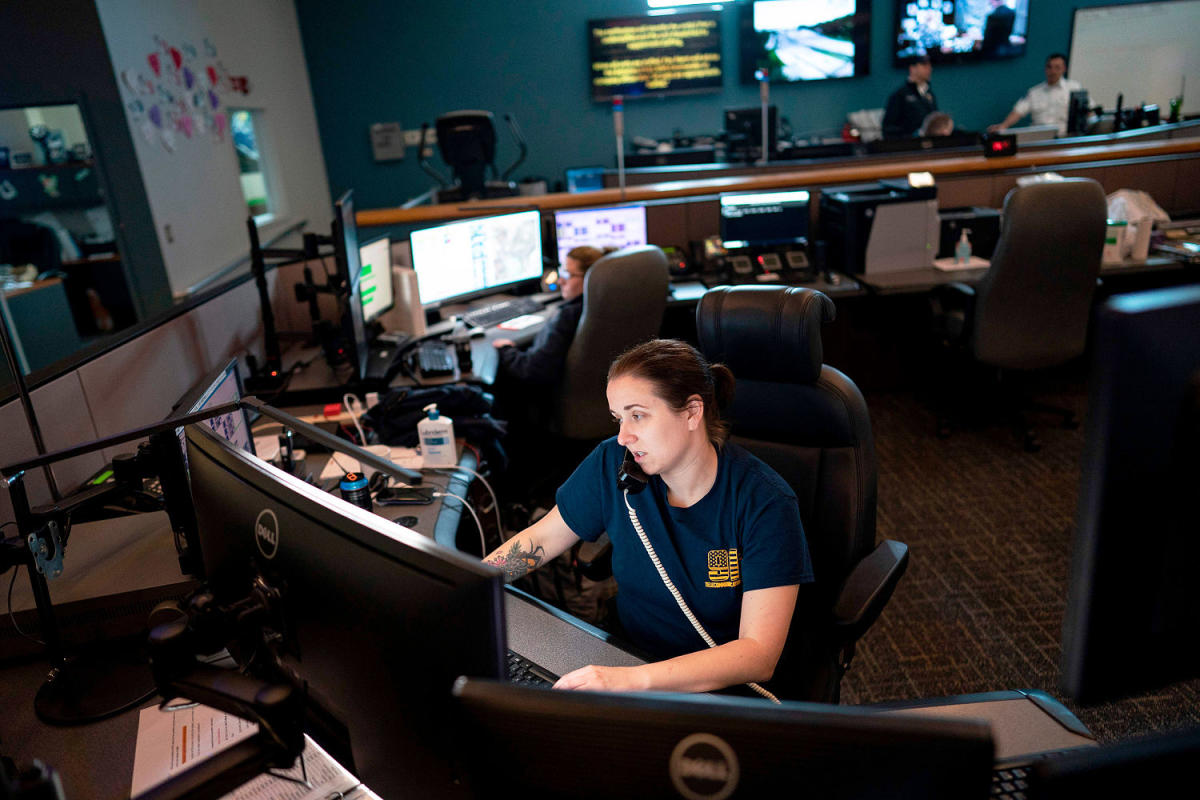A major 911 outage Wednesday showed the urgent need for more modernization and regulation of the emergency system, telecommunications and public safety experts told NBC News.
On Thursday, Lumen Technologies, a telecommunications company based in Louisiana, said in a statement that “some customers in Nevada, South Dakota and Nebraska experienced outages due to a third-party company installing a light pole – unrelated to our services.”
The outage left millions of people in multiple states without emergency access to authorities for about two and a half hours.
“Our technicians identified the issue and worked diligently to resolve it as quickly as possible,” Lumen said. “We apologize for the inconvenience and appreciate our customers’ patience and understanding.”
Harold Feld, senior vice president of Public Knowledge, a nonprofit public interest group focused on telecommunications and internet law, said a single pole should not be able to disable 911 in multiple states.
“Everyone knows that when you have a system that is critically important, that lives depend on, it doesn’t all come down to one single strand of fiber,” he said.
The Federal Communications Commission said Thursday it is investigating the incident.
“If you call 911 in an emergency, it is crucial that the call goes through. The FCC has already begun investigating the multi-state 911 outages that occurred last night to get to the bottom of the cause and impact,” said Chairman Jessica Rosenworcel. a statement.
There were power outages in Nebraska, Nevada, South Dakota and Texas and appeared to be restored by late evening, although it was not clear if all of these outages were related to Lumen.
The 911 system debuted in 1968 to give people an easy way to call emergency services, instead of having to remember or find local numbers.
But it has never been a single, unified system.
“There are more than 6,000 jurisdictions for 911,” said retired Vice Adm. David Simpson, head of the FCC’s Public Safety and Homeland Security Bureau from 2013 to 2017. “Decisions made on equipment and budget vary from state to state.” to state to state.”
Feld said, “These types of outages could affect multiple states because states and local communities can now outsource the operation of their 911 systems to different companies.”
Feld said outsourcing 911 systems to private companies has meant that outages can affect states even if the source of the problem is miles away.
The multi-state outage “reemphasizes the fact that our 9-1-1 systems are critical telecommunications services in urgent need of updating,” said Brian Fontes, CEO of NENA The 9-1-1 Association, a nonprofit organization that focuses on 911 operations and policy issues, according to a statement.
“When disruptions occur, it is important that all responsible parties conduct a thorough investigation to understand what happened and why, so we can learn what needs to be changed and reduce the likelihood of future disruptions,” Fontes said.
“This incident makes clear that Congress must fund the deployment of Next Generation 9-1-1 so that every state and community can better withstand disasters and cyberattacks,” he said.
Simpson also said the incident showed the need to modernize the 911 system across the country.
He said Lumen Technologies’ response “was not a good answer – 911 should not be unavailable in large areas because of a problem with one light pole.”
Simpson said 911 service providers such as Lumen Technologies are required to annually examine their circuits that support 911 “and formally certify to the FCC that all services that support 911 answering points have circuit diversity,” as well as remote monitoring and backup power for unmanned circuit equipment.
“If that’s not the case, they should include in their attestation any instance where that’s not the case,” he said, citing an FCC rule.
Simpson said every year there is a bill that says, “We’re going from this patchwork of different 911 capabilities across the country to something that is an objective, Next Generation 911 system that has common capabilities across the country. Congress still hasn’t passed it.”
Feld said the outages highlighted the need for more regulation, especially at the state level, with more standards or rules “that would prevent these types of things from happening.”
“You need backups; you need redundancy,” he said.
The current system lacks “resilient backups” that could prevent outages at several levels, Simpson said, such as having more cables for path diversity and multiple telecommunications carriers, updated equipment and multiple routers.
“Engineers will tell you not to assume everything will work out,” Feld said. “When you build a system like that, you assume that things will go wrong, and you build it so that things can go wrong without breaking the whole system.”
This article was originally published on NBCNews.com






